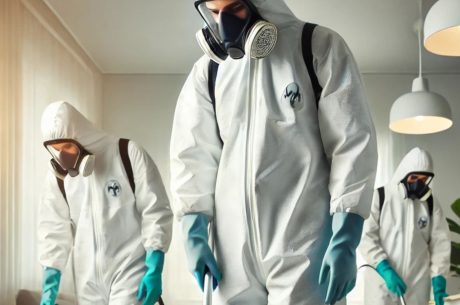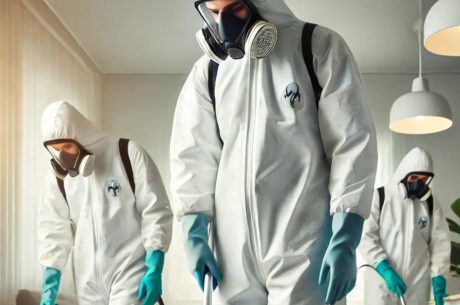Table of Contents
When to Call the Pros: Signs a Hoarding Situation Needs Professional Help
Hoarding is more than just collecting items or being messy—it’s a serious mental health condition that can lead to dangerous living conditions, strained relationships, and serious health and safety risks. For friends, family members, and property owners, it can be hard to know when the clutter has crossed a line and when it’s time to bring in a professional hoarding cleanup service. Understanding the signs that professional help is needed can make all the difference in ensuring the well-being of everyone involved.
Understanding Hoarding Disorder
Hoarding Disorder is a recognized mental health condition where a person has persistent difficulty discarding or parting with possessions, regardless of their actual value. This behavior leads to cluttered living spaces and can severely limit the use of a home’s rooms for their intended purposes. It’s not simply disorganization or being sentimental—hoarding is complex and often tied to emotional trauma, anxiety, depression, or obsessive-compulsive tendencies.
Because of the deep psychological roots, hoarding cleanups are rarely just about “cleaning up the mess.” They require a compassionate, non-judgmental, and professional approach that respects the individual’s dignity while restoring safe living conditions.
So how can you tell when a hoarding situation requires professional help?
1. Blocked Entrances, Exits, or Pathways
One of the most obvious signs is when pathways in the home become obstructed by piles of belongings. If furniture, doors, or staircases are blocked, it can pose a serious safety hazard—especially in case of a fire or medical emergency. In these situations, it’s not just about clutter; it’s about life-threatening conditions.
A professional cleanup crew is trained to clear these areas safely and systematically, making the home accessible again without overwhelming the resident.
2. Structural Damage or Severe Filth
If you notice significant structural damage—such as collapsing floors, broken windows, water damage, or mold—it’s time to call the pros. Hoarded homes often experience neglected maintenance issues because access to certain areas is limited or completely blocked.
In addition to structural problems, severe filth such as rotting food, human or animal waste, pest infestations, and biohazardous materials are red flags that the home is no longer a safe or healthy environment. These conditions require specialized protective equipment and training to handle safely, and professional hoarding cleanup teams are equipped to do so.
3. Presence of Mold or Biohazards
When hoarding involves perishable items or unsanitary conditions, mold and other biohazards can become a serious concern. Food hoarding, pet hoarding, or lack of waste disposal can lead to bacterial growth and disease risks.
Professional hoarding cleanup teams often work in tandem with mold remediation and biohazard specialists. This comprehensive approach ensures that not only is the visible clutter addressed, but the underlying environmental hazards are eliminated as well.
4. Overwhelming Odors
Persistent, overpowering odors are a common indicator of hoarding-related damage. These smells are often caused by mold, decaying organic matter, or hidden pest infestations. Air fresheners and surface cleaning won’t address the root cause—especially if it’s buried under layers of items.
Professionals have the tools and cleaning agents needed to not only remove the clutter but also sanitize the home and neutralize odors at their source.
5. Emotional Distress or Resistance to Help
Hoarding is often accompanied by extreme anxiety at the thought of parting with items—even those that seem worthless to others. If you notice that your loved one becomes distressed, defensive, or angry when the topic of cleaning comes up, it’s a sign that you need a team experienced in working with hoarders.
Professional cleanup companies specializing in hoarding understand how to navigate these delicate emotional dynamics. They work with compassion, confidentiality, and often in collaboration with mental health professionals to ensure the process is respectful and effective.
6. Legal or Property Management Issues
Sometimes, a hoarding situation reaches the attention of landlords, neighbors, or city officials. When legal notices, code violations, or eviction threats are on the table, it’s absolutely time to bring in the professionals. Attempting a rushed or amateur cleanup under pressure can be traumatic for the resident and may worsen the situation.
Experienced hoarding remediation teams are familiar with housing codes, tenant rights, and the necessary steps to bring a property back into compliance while minimizing further conflict or stress.
7. Family Conflict and Isolation
Another less visible but equally significant sign is social withdrawal or frequent conflict with family members over the condition of the home. If someone is isolated, embarrassed to invite visitors, or frequently argues about their living environment, it’s often because the clutter is beyond their control.
Professional intervention can help relieve some of this pressure by taking the burden off the individual and their family, offering a structured, compassionate cleanup plan.
Final Thoughts: You Don’t Have to Do It Alone
Hoarding situations are deeply personal and emotionally complex. They can be overwhelming, frustrating, and even dangerous—but help is available. When clutter becomes a crisis, calling in professional hoarding cleanup services is often the most respectful and effective way to restore safety and dignity to the living space.
If you or a loved one in Maine is struggling with hoarding, the team at PuroClean of Auburn is here to help. We specialize in hoarding cleanup services that prioritize safety, compassion, and confidentiality. Let us help you reclaim your home—one step at a time.
Contact us today to schedule a discreet consultation and take the first step toward a cleaner, healthier future.




 PuroClean of Auburn
PuroClean of Auburn